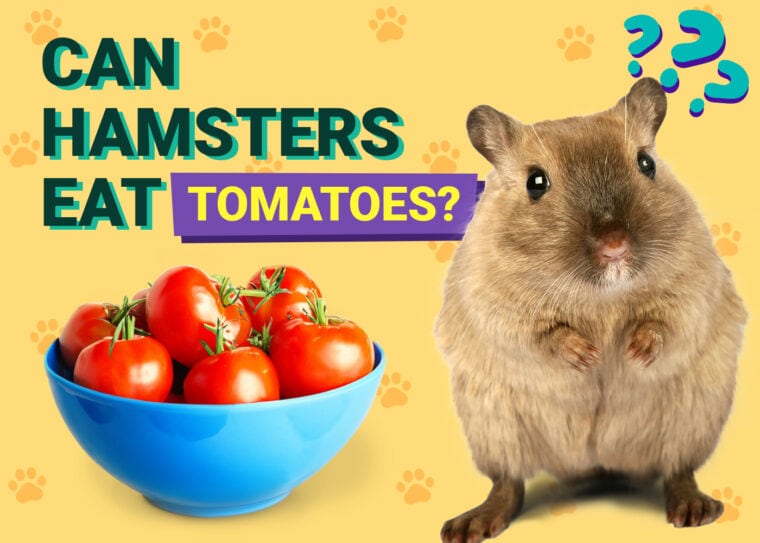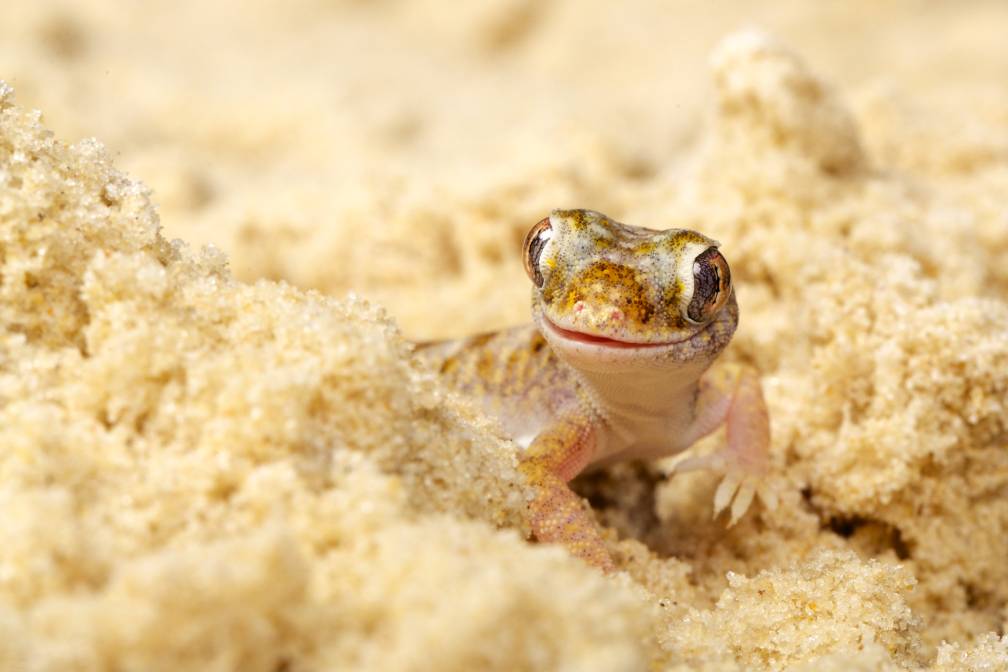
Pet hamsters will usually eat a diet consisting of store-bought food pellets, but they can also enjoy some human food, primarily in the shape of fresh fruit and vegetables. However, not all fruits and vegetables are safe for your pet hamster.
While tomatoes might seem like a healthy addition to a hamster diet, they are part of the nightshade family and can contain tomatine, which can cause gastrointestinal problems such as vomiting and diarrhea. Because they have the potential to cause toxicity, owners are recommended to avoid this food and opt for other fruits and vegetables instead.
 Hamster Diet
Hamster Diet
90% of a hamster’s diet will usually consist of a good-quality, store-bought pellet food. This contains all of the vitamins and nutrients that your hamster requires, is convenient and safe to eat, and should not contain any harmful or toxic ingredients. However, this does leave 10%.
10% of your hamster’s diet can come from other sources. You can feed hay. They may even like occasional treats like boiled egg or mealworm, and you can also feed them fresh fruit and vegetables. Generally, green vegetables are considered safe, and fruit should be fed in small quantities because it contains a lot of natural sugar that can cause your hamster to pack on weight and become unwell.

Tomatine Poisoning
Tomatoes might seem like a healthy addition to your hamster’s diet. Humans are encouraged to eat them because they are mainly carbohydrates and are packed with beta-carotene as well as vitamins C, E, K, and some B vitamins.
However, they are part of the nightshade family. When perfectly ripe, they can be safe for your hamster, but problems arise when the fruit is not ripe. At this stage, it contains a lot of tomatine, which is actually used as a poison for animals and can prove toxic to hamsters. Tomatine can also be found in the leaves and stems of the tomato.
High Acidity
Even if you’re sure that a tomato is fully ripe, feeding it to your hamster still carries risk. Tomatoes are high in fiber, which can cause diarrhea. They also contain high levels of water, and too much water can be as dangerous as not enough. Finally, the acid in tomatoes means that some hamsters simply cannot stomach this acidic little fruit. They will get diarrhea and vomiting and this can lead to other problems, including dehydration.

How Many Tomatoes Can You Feed Your Hamsters?
In general, it is better to completely avoid feeding tomatoes to your hamster. This is especially true with baby hamsters, and you should not feed them any. If you know that your hamster can handle the acid and fiber in a fully ripened tomato, you can feed a teaspoon a week, but the potential for toxicity means that we recommend avoiding this food source altogether.
Stick to a diet that consists of 90% pellets, and make up the remaining 10% from foods that you know are safe and that give some health benefits to your little rodent.
Alternatives to Tomatoes
Timothy hay is a popular food source. It encourages foraging behavior which is important to hamsters. It also offers fiber and roughage. Not all hay is safe for hamsters, but you can feed timothy hay, alfalfa, and meadow hay.
A tasty little treat that your hamsters will love is mealworm. If you feed them live, it is worth remembering that your hamster may stick the worm in his pouch, and the live mealworm could potentially chomp down into your hamster’s cheek. As such, it is recommended to feed dead or dried mealworms only. Mealworms are not only tasty and smell great (to your hamster, at least) but they contain protein, fat, fiber, and saturated and monounsaturated fatty acids.

What Vegetables Can a Hamster Eat?
Although tomatoes are not considered a safe addition to a hamster’s diet, there are other vegetables that you can feed. Fresh green vegetables are a good choice, but you should avoid iceberg lettuce and anything that has high water content. Spinach, romaine lettuce, carrot tops, and broccoli spears are all considered healthy and tasty treats for a hamster.
You can also feed small amounts of some fruit. The flesh of an apple, with the skin and seeds removed, along with pear, strawberry, and banana can all be fed to your hamster. These sweet treats really do need to be fed in moderation, however, because they contain a lot of natural sugar.
Can Grapes Kill Hamsters?
Grapes are safe, and even healthy, for herbivores like hamsters. They should not be fed whole, and you should remove the skin. You should also limit the amount of grapes that you feed your hamster because the fruit is packed with sugar and may lead to stool changes.

Can Hamsters Eat Oranges?
Oranges and all other citrus fruits should be avoided. They are highly acidic and, at best, this can lead to stomach upset. At worst, highly acidic citrus fruits like oranges, tangerines, lemons, and grapefruit, can cause vomiting and diarrhea.

Final Thoughts
Tomatoes are acidic and can cause gastric upset. If not fully ripe, the tomatine contained in tomatoes can also prove toxic for your hamster, and this substance is also found in the leaves and stems of the fruit.
Although it may be possible to feed your adult hamster a small amount of fully ripened tomato flesh, it is best avoided. Instead, consider alternative vegetables like broccoli or romaine lettuce. A small amount of fruit, as well as mealworms, boiled eggs, and a variety of hay can also be added to a hamster’s primary diet of high-quality food.
Featured Image Credit: Pixabay

 Hamster Diet
Hamster Diet







